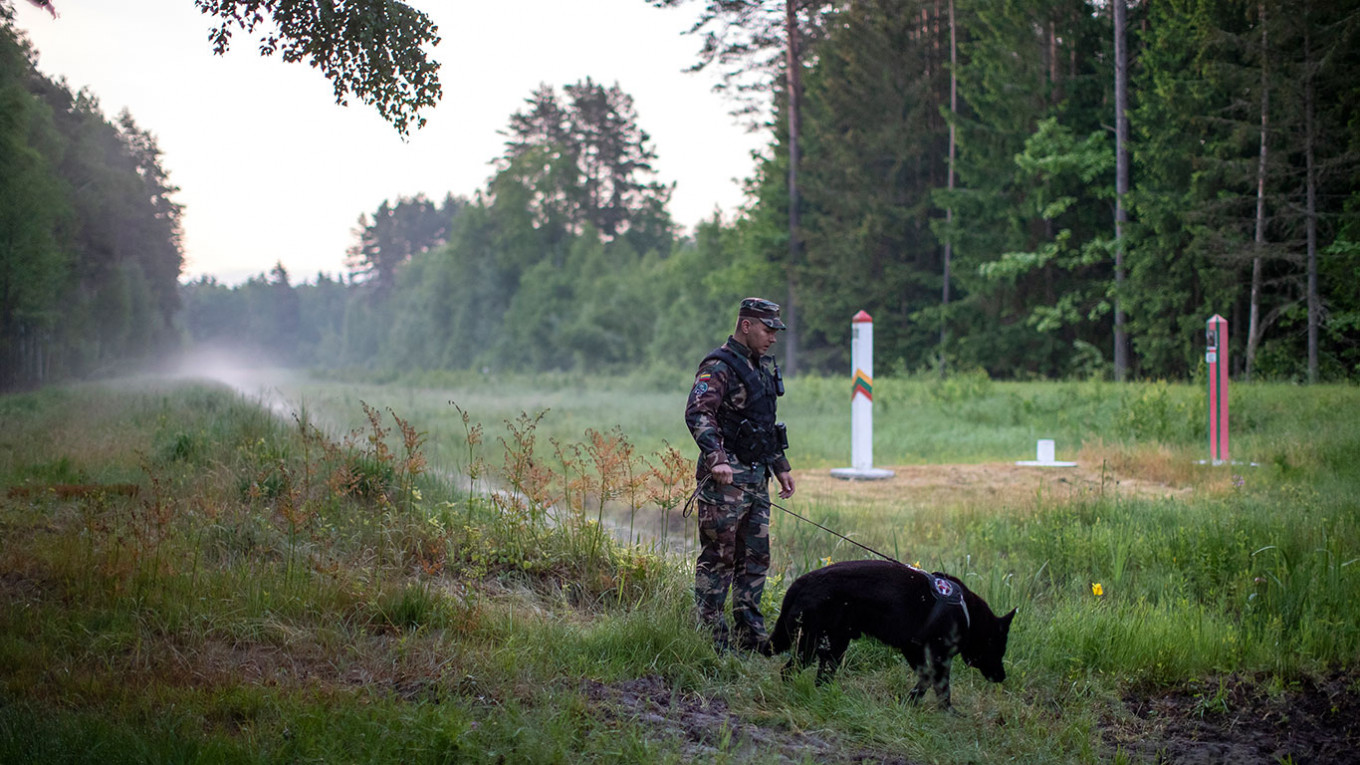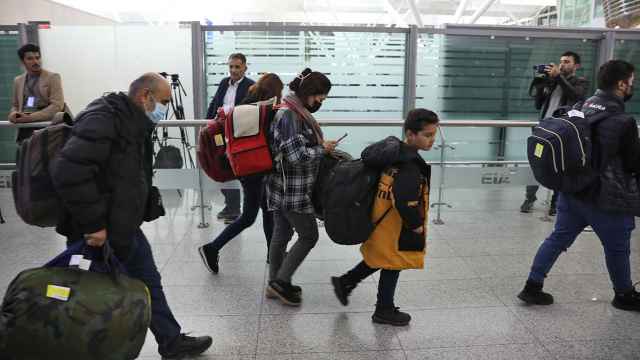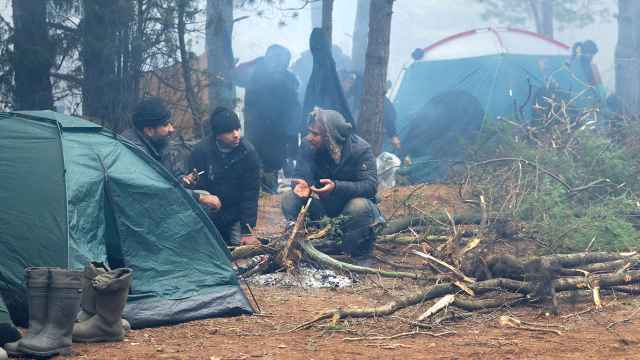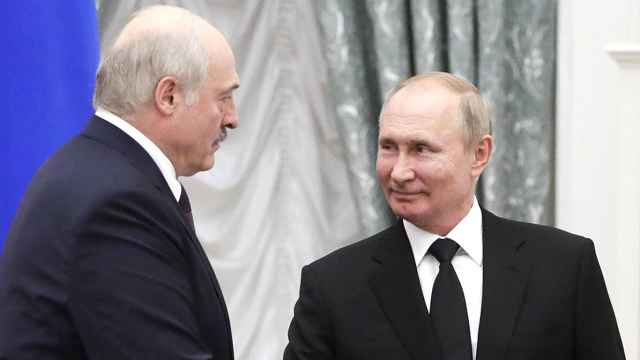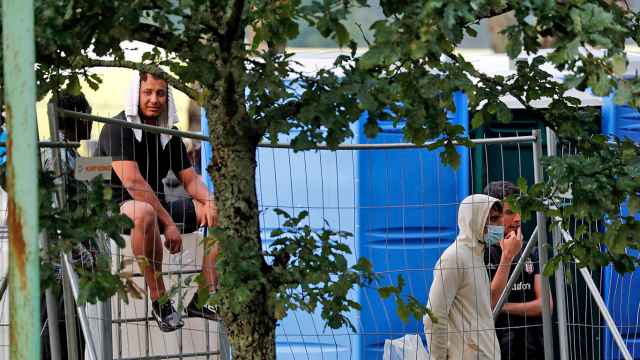Belarusian President Alexander Lukashenko on Wednesday ordered an investigation into the death of an Iraqi man who was allegedly found near Belarus's border with Lithuania as tensions flare between the two countries.
The announcement of the probe came as border guards in EU member Lithuania said Tuesday they had begun to push back migrants trying to enter illegally from Belarus.
Lithuanian officials suspect the Lukashenko regime of orchestrating an unprecedented influx of illegal migrants in retaliation for EU sanctions over the authoritarian president's crackdown on dissent following last year's disputed election.
Belarusian border guards said Wednesday they found a man in "serious" condition in Benyakoni, near the border with Lithuania.
The unidentified man "died in the arms of the border guards," said the semi-official Telegram channel of the Belarusian presidency.
"The president was immediately informed of this shocking murder of an Iraqi returning from Lithuania," the channel said.
Lukashenko ordered a probe into the incident and said that the relatives of the deceased are to be located and issued Belarusian visas so they can retrieve the body, it added.
The European Union has accused Belarus of weaponizing migrants, a claim the ex-Soviet country denies.
"To use migrants as a weapon, pushing people against the borders, is unacceptable," Europe's foreign policy chief Josep Borrell said in late July.
The 27-nation bloc was also pressing Iraq to help stem the flow of migrants to Belarus.
On Tuesday, the spokesman of the Belarusian foreign ministry, Anatoly Glaz, rejected those "unfounded accusations."
Belarusian border guards said Tuesday that some 40 migrants with "bodily injuries", including women and children, had been turned back by Lithuania and accused the EU state of using "force."
So far this year, Lithuanian border guards have detained more than 4,000 migrants — mostly Iraqis — compared with 81 for all of 2020.
Tensions between Minsk and Vilnius have escalated after Lithuania sheltered several members of the Belarusian opposition, including Lukashenko's election rival Svetlana Tikhanovskaya.
Several opposition figures have fled the country as Lukashenko cracked down on opponents following unprecedented protests that broke out after a contested presidential election last August.
A Message from The Moscow Times:
Dear readers,
We are facing unprecedented challenges. Russia's Prosecutor General's Office has designated The Moscow Times as an "undesirable" organization, criminalizing our work and putting our staff at risk of prosecution. This follows our earlier unjust labeling as a "foreign agent."
These actions are direct attempts to silence independent journalism in Russia. The authorities claim our work "discredits the decisions of the Russian leadership." We see things differently: we strive to provide accurate, unbiased reporting on Russia.
We, the journalists of The Moscow Times, refuse to be silenced. But to continue our work, we need your help.
Your support, no matter how small, makes a world of difference. If you can, please support us monthly starting from just $2. It's quick to set up, and every contribution makes a significant impact.
By supporting The Moscow Times, you're defending open, independent journalism in the face of repression. Thank you for standing with us.
Remind me later.


